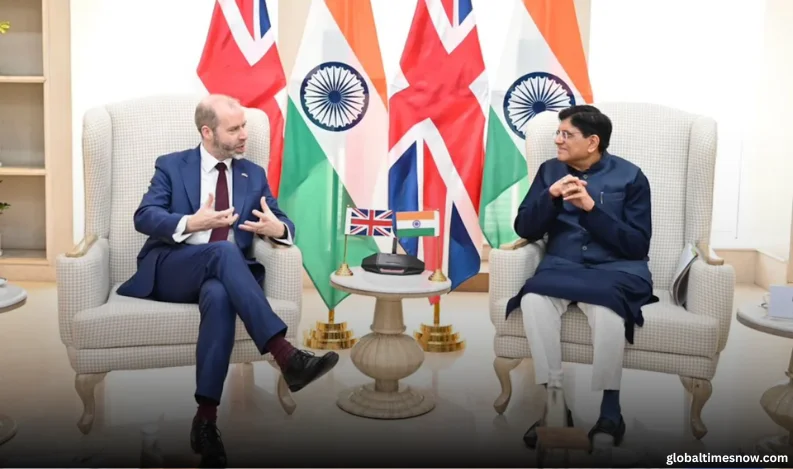London – The United Kingdom has ruled out including student visas in its ongoing Free Trade Agreement (FTA) negotiations with India, confirming that the discussions will only cover business mobility visas. The clarification came during a debate in the House of Lords last week, where members of Parliament pressed for details on the progress of the long-awaited trade deal.
The announcement was made in response to growing speculation about whether student visa policies would be addressed as part of the India-UK trade pact. However, the UK government has made it clear that student visas remain separate from trade negotiations.
Government's Stand on Visa Policies
During the "Question for Short Debate" session in the House of Lords, Lord Sonny Leong, speaking on behalf of the government, reaffirmed that only temporary business visas are included in the trade discussions.
“Our negotiations consider only business mobility, meaning they cover only relevant business visas, which are limited, temporary, and serve specific purposes. This benefits UK exporters delivering services abroad. Student visas are not part of the trade deals,” said Lord Leong.
His statement puts an end to speculation that the agreement could include provisions making it easier for Indian students to obtain UK study visas.
Push for Faster FTA Finalization
Negotiations for the India-UK Free Trade Agreement began in January 2022 under the previous Conservative government but have continued under the new Labour administration. Talks were recently restarted in February 2025, when UK Business and Trade Secretary Jonathan Reynolds visited New Delhi.
Despite calls for an expedited timeline, the UK government maintains that securing a beneficial agreement takes precedence over meeting a deadline.
“The government has made clear that we are willing to negotiate at pace towards a deal in the best interests of the UK. However, we will not rush into signing an agreement until we are confident it secures the best possible terms for the UK,” Lord Leong added.
India-UK Trade and Economic Ties
India and the UK have a strong economic relationship, with bilateral trade valued at GBP 41 billion in the last financial year. The trade agreement is expected to further boost commerce and investment between the two nations.
One of the primary focuses of the negotiations is reducing tariffs, particularly those affecting British exports to India.
“In any trade agreement, one of the main goals is to lower tariffs that UK exporters face. Indian tariffs can be extremely high, exceeding 100% on products such as whisky,” Lord Leong pointed out.
Calls for Stronger Indo-UK Engagement
Several prominent British Indian peers, including Lord Karan Bilimoria, Lord Kuldip Singh Sahota, Lord Sandy Verma, and Lord Raj Loomba, urged the government to speed up negotiations and finalize the deal without further delays.
“Trade means growth, jobs, and economic opportunity. If we delay this agreement, others will step in to fill the gap. The UK must act decisively,” said Lord Sahota.
Lord Bilimoria, a well-known business leader, suggested that the UK should strengthen its ties with the Indo-Pacific region by joining the Quad alliance—which currently includes India, the US, Japan, and Australia—as a “Quad Plus” member.
“This deal would bring multiple benefits—lower trade costs for businesses, more choices for consumers, and competitive pricing. Three Diwalis have passed since negotiations began. We must move forward and get this deal signed,” said Lord Bilimoria.
India’s Perspective on the Trade Deal
India has also shown a strong interest in finalizing the agreement. During his recent visit to London, Indian External Affairs Minister S. Jaishankar expressed cautious optimism about the pace of discussions.
“From my meetings with Prime Minister Starmer, Foreign Secretary David Lammy, and Trade Secretary Jonathan Reynolds, I received a clear message that the British government wants to move forward with the agreement. I remain hopeful that the deal won’t take too long,” said Jaishankar.
What’s Next?
With negotiations gaining momentum, the India-UK FTA remains a key priority for both governments. While student visas will not be part of the trade pact, business mobility visas and tariff reductions are expected to shape the final agreement.
Trade experts believe that a comprehensive and well-structured agreement could significantly boost investment, create jobs, and strengthen economic ties between India and the UK. However, both sides remain cautious about rushing into a deal that does not serve their long-term interests.
For now, business and trade remain the focus of the FTA discussions, with both governments working towards a deal that balances economic growth and strategic interests.























